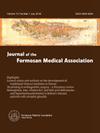间断性主动脉弓或主动脉瓣闭锁双心室修补术后左心室流出道梗阻的预测因素。
IF 2.6
3区 医学
Q1 MEDICINE, GENERAL & INTERNAL
引用次数: 0
摘要
背景左心室流出道梗阻(LVOTO)的再次介入是主动脉成形术后主动脉共动脉症(CoA)或主动脉弓中断(IAA)患者发病和死亡的重要原因。结果在121名患有CoA/IAA的新生儿中,16名(13.7%)主动脉成形术初诊患者出现了LVOTO。此外,一名接受分期安井手术的患者(25%)因室间隔缺损-肺动脉闭锁隧道狭窄而出现左心室梗阻。在随访期间,58%的双尖瓣患者和25%的主动脉瓣下嵴患者出现了左心室缺血。结论 在IAA/CoA患者中,双尖瓣、主动脉瓣下嵴和主动脉瓣环Z-score < -3.0等多种危险因素的存在与LVOTO再介入率显著增加有关。本文章由计算机程序翻译,如有差异,请以英文原文为准。
Predictors of left ventricular outflow tract obstruction after biventricular repair in interrupted aortic arch or aortic coarctation.
BACKGROUND
Left ventricular outflow tract obstruction (LVOTO) re-intervention is a significant cause of morbidity and mortality in patients with coarctation of the aorta (CoA) or interrupted aortic arch (IAA) after aortoplasty.
METHODS
This retrospective study analyzed data from neonates with IAA/CoA who underwent biventricular repair between 2012 and 2022. LVOTO events were defined by the detection of color Doppler flow acceleration ≥3.0 m/s at the valvular, subvalvular, or supravalvular regions via transthoracic echocardiography, and the necessity for surgical or catheter intervention to relieve the obstruction.
RESULTS
Among 121 neonates with CoA/IAA, 16 (13.7%) primary aortoplasty patients developed LVOTO. Additionally, one patient (25%) who underwent a staged Yasui operation developed LVOTO due to a narrowed ventricular septal defect-pulmonary atresia tunnel. During follow-up, 58% of patients with a bicuspid valve and 25% of patients with a subaortic ridge developed LVOTO. The combination of either a bicuspid valve, subaortic ridge, or an aortic valve annulus Z-score < -3.0 predicted a high re-intervention rate (7/8 [87.5%]).
CONCLUSIONS
In patients with IAA/CoA, the presence of multiple risk factors, including a bicuspid valve, subaortic ridge, and an aortic valve annulus Z-score < -3.0, is associated with a significantly increased rate of re-intervention for LVOTO.
求助全文
通过发布文献求助,成功后即可免费获取论文全文。
去求助
来源期刊
CiteScore
6.50
自引率
6.20%
发文量
381
审稿时长
57 days
期刊介绍:
Journal of the Formosan Medical Association (JFMA), published continuously since 1902, is an open access international general medical journal of the Formosan Medical Association based in Taipei, Taiwan. It is indexed in Current Contents/ Clinical Medicine, Medline, ciSearch, CAB Abstracts, Embase, SIIC Data Bases, Research Alert, BIOSIS, Biological Abstracts, Scopus and ScienceDirect.
As a general medical journal, research related to clinical practice and research in all fields of medicine and related disciplines are considered for publication. Article types considered include perspectives, reviews, original papers, case reports, brief communications, correspondence and letters to the editor.

 求助内容:
求助内容: 应助结果提醒方式:
应助结果提醒方式:


